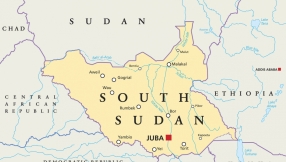The US Army has reportedly destroyed Bibles in Afghan languages which were sent to a soldier in Afghanistan and then confiscated.
The decision to confiscate and destroy the Bibles was taken in order to ensure that soldiers did not breach rules forbidding proselytising to the local civilian population.
Al Jazeera recently showed footage of soldiers at a Bible class at a base with a stack of Bibles translated into the Afghan languages Pashto and Dari. The US military has denied that its soldiers have been trying to convert Afghans to Christianity.
All soldiers are forbidden, under US Central Command’s General Order Number One, from trying to convert people to another religion while they are on active duty.
A spokeswoman for the US military, Major Jennifer Willis, said, "I can now confirm that the Bibles shown on Al Jazeera's clip were, in fact, collected by the chaplains and later destroyed. They were never distributed," reports Reuters.
According to military officials the Bibles were sent to an evangelical Christian soldier by his church via private mail. The soldier then brought them into the study class where they were caught on camera.
In Afghanistan, despite the fall of the Taliban, trying to convert Muslims to another religion is still a crime. In 2006 a convert was sentenced to death for apostasy before being permitted to leave the country following huge international pressure.
Admiral Mike Mullen, the chairman of the US Joint Chiefs of Staff, said, “It certainly is, from the United States military's perspective, not our position to ever push any specific kind of religion, period."
Most Popular
Stay up to date with Christian TodayNews

NI conversion therapy proposal will criminalise innocent behaviour
A proposal to ban conversion therapy in Northern Ireland has been labelled "jellyfish legislation".

Renewing the old and sanctifying the new in education
Hebrew academic and Jewish scholar Irene Lancaster reflects on what society can learn from the Jewish approach to education and the importance of nurturing the soul.

Half of students think the Bible is relevant today
Is the glass half empty, or is it half full?

Lancashire called to pray for partners in crisis-hit South Sudan
The Diocese of Blackburn has forged strong ties with its South Sudanese counterpart in Liwolo.





